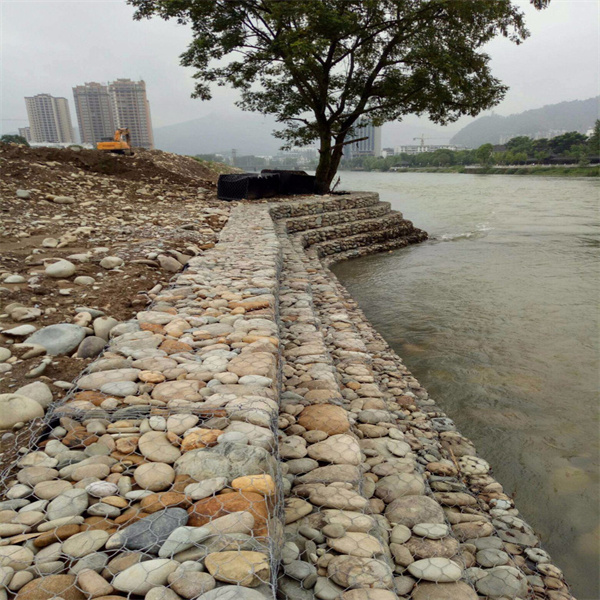Nov . 11, 2024 02:28 Back to list
Bulk Gabions and Riprap for Effective Erosion Control and Landscaping Solutions
Understanding Wholesale Gabions and Riprap A Comprehensive Guide
In the world of construction and civil engineering, the use of gabions and riprap has gained significant traction due to their effectiveness in controlling erosion, managing water flow, and enhancing landscape aesthetics. This article explores the significance of wholesale gabions and riprap, their applications, benefits, and factors to consider when purchasing them.
What are Gabions?
Gabions are wire mesh baskets filled with stones, rocks, or other durable materials. They are designed to hold back soil or water, providing a strong and stable structure that prevents erosion and slope failure. Gabions are typically used in retaining walls, flood control measures, and landscaping projects. The flexibility of gabions allows them to adapt to various terrains and environmental conditions, making them a popular choice among engineers and contractors.
The Role of Riprap
Riprap is a construction material commonly used to protect shorelines, stream banks, and other areas against erosion. Composed of large, loose stones or concrete, riprap creates a barrier that absorbs the energy of flowing water, reducing the risk of soil displacement. Riprap can be painstakingly placed in specific configurations, or it can be distributed loosely, depending on the design requirements of the project.
Wholesale Gabions and Riprap Economic Benefits
Purchasing gabions and riprap wholesale can offer significant cost savings for contractors and construction companies. Wholesale suppliers typically provide materials at a lower price per unit than retail vendors, making it economical, especially for large-scale projects. Additionally, buying in bulk minimizes transportation costs and delays associated with ordering smaller quantities.
Applications of Gabions and Riprap
The applications of gabions and riprap are vast and varied
.1. Erosion Control Both materials are highly effective in managing erosion. Gabions can be strategically placed along riverbanks or slopes to stabilize soil and reduce wear caused by water flow. Meanwhile, riprap serves as a protective layer that minimizes the physical impact of waves or currents.
wholesale gabion and riprap

2. Retaining Structures Gabions can be used to build retaining walls that support vertical slopes. Their permeability allows for effective drainage, which further prevents water accumulation behind the wall, thus prolonging its lifespan.
3. River and Stream Bank Protection Riprap is often employed along riverbanks and stream banks to prevent erosion from water flow. This protects both the aquatic ecosystem and the surrounding land.
4. Aesthetic Landscaping Beyond their functional uses, gabions can also be utilized in landscaping to create visually appealing features. When filled with colorful stones or decorative materials, gabions can serve as eye-catching garden walls, flower beds, or seating areas.
Choosing the Right Supplier
When considering wholesale gabions and riprap for your project, selecting a reliable supplier is crucial. Here are a few factors to keep in mind
1. Quality of Materials Ensure that the supplier provides high-quality materials that comply with industry standards. Durable and properly constructed gabions and high-grade riprap stones will provide better long-term results.
2. Variety of Options A good supplier should offer a variety of mesh sizes, coating options, and stone types. This variety allows you to choose the best materials suited for your specific project and environment.
3. Customer Service Evaluate the supplier's customer service reputation. Good communication, timely deliveries, and responsive support can significantly impact your project’s success.
4. Experience and Expertise Suppliers with a proven track record in the industry will likely provide better advice, guidance, and product recommendations based on the latest techniques and materials.
Conclusion
Wholesale gabions and riprap offer a practicality and aesthetic appeal that can enhance various construction projects. By understanding their roles, benefits, and applications, as well as selecting a reliable supplier, contractors can leverage these materials to ensure successful outcomes in erosion control, landscaping, and infrastructure projects. Investing in these solutions is not just about immediate savings; it's also about long-term sustainability and performance in challenging environments.
-
Visualizing Gabion 3D Integration in Urban Landscapes with Rendering
NewsJul.23,2025
-
The Design and Sustainability of Gabion Wire Mesh Panels
NewsJul.23,2025
-
The Acoustic Performance of Gabion Sound Barriers in Urban Environments
NewsJul.23,2025
-
Mastering the Installation of Galvanized Gabion Structures
NewsJul.23,2025
-
Gabion Boxes: Pioneering Sustainable Infrastructure Across the Globe
NewsJul.23,2025
-
Custom PVC Coated Gabion Boxes for Aesthetic Excellence
NewsJul.23,2025
-
Installation Tips for Gabion Wire Baskets in Erosion Control Projects
NewsJul.21,2025






